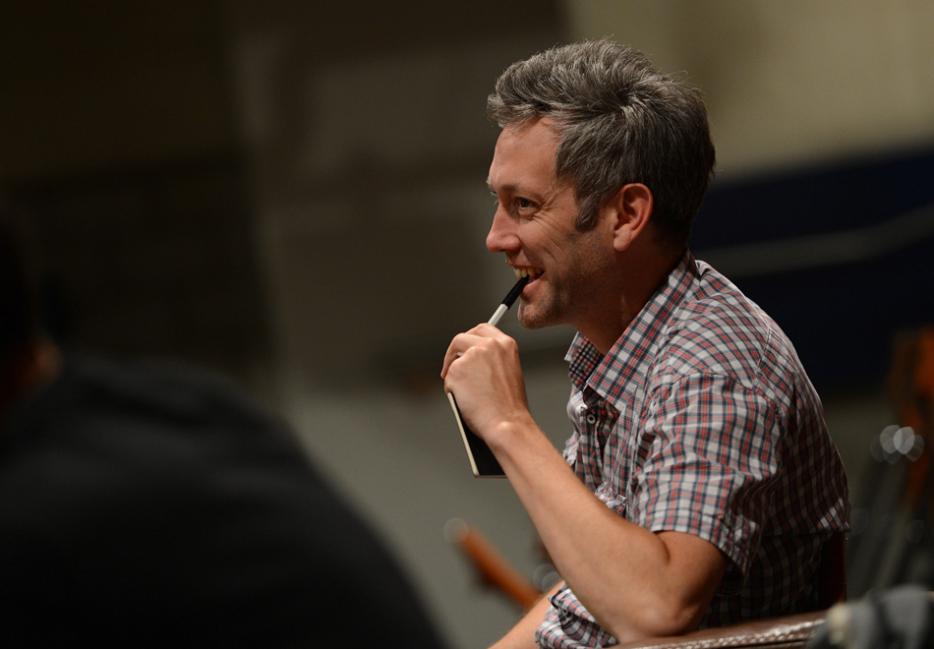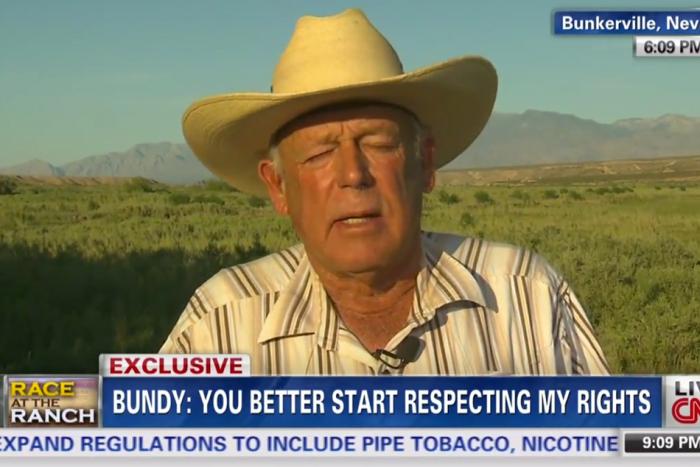In September of 2012, I quit my job at a restaurant that put oily duck shreds on pizza with the intention of “being the thing I knew myself to be.” Part of being that nebulous thing, I believed, would be to meet and absorb—like a vampire, or a tampon—all that was vital about an artist I was fixated on: New York-based playwright/director Richard Maxwell. At the time, Maxwell’s work was waking me up to unorthodox methods of making, participating in, watching, and digesting live performance. Understanding Richard Maxwell seemed like the way to that hall of wonder that would, at long last, let me be the artist that I desperately wanted to bring out of apparent latency.
Truly understanding Maxwell meant interviewing him, which I prepared for by close reading his published work, repeatedly watching performance clips on YouTube, and worrying about how to discuss plays that no amount of obsessive study seemed to make me any more fluent in. I thought it was because I hadn’t seen one live. And then I saw one in New York the day before I was to meet him; Neutral Hero, about a young man who leaves home in search of his father, encountering various pains, people, and beauty along the way. More than that, Neutral Hero was Maxwell’s homage to Joseph Campbell, American mythology, and to his own intractable way of making theatre.
Watching Neutral Hero, I felt mentally clumsy—too fixed in my conventional view of theatre to understand what was happening to me. I was engaged, at moments even mesmerized. But I never forgot that I was watching a play, because Maxwell goes out of his way to remind you.
Maxwell was raised in Fargo, North Dakota, trained as an actor in Illinois, and completed a fellowship at Chicago’s prestigious Steppenwolf Theater. Around the same time, 20 years ago or thereabouts, he co-founded an experimental theatre company with his friends called the Cook County Theater Department before moving to New York. It was there that he fully shifted away from acting, writing and directing his own weird, bracingly uncommon plays with his new company, the New York City Players. Before he became a bona fide “auteur,” Maxwell presented himself to the Wooster Group and the company’s de facto leader, Elizabeth LeCompte, with whom he still has a rich and symbiotic creative relationship.
Since then, Maxwell has produced more than 20 of his own plays, and three more written by protégés under an NYCP endeavor called American Playwrights Division. His work has toured internationally, won him a Guggenheim Fellowship, a Doris Duke Artist Award, and the Spalding Gray Award.
You may be thinking: How can a play be anything more than a middle-class alternative to a nap? Or maybe you love the theatre, love the feeling of sliding a programme under your left thigh; of the house lights going down, the rituals and gestures that are so recognizably of the stage. A Richard Maxwell play—like Neutral Hero or his recent work, Isolde—seems to systematically reject basic theatre while also being thoroughly aware of “basic” theatrical conventions: the deep appeal of credible naturalism, the virtuosic actor, a linear sense of time, minutes faked as months. That’s what people pay for, right? But it’s not what Maxwell is selling.
*
Richard Maxwell’s theatre is often defined by the following:
1) Trademark performance style wherein actors speak with exaggerated deadpan delivery.
2) The inclusion/interaction of discernibly amateur actors with trained actors, although the hierarchy is (mostly) evened out by the affectless style.
3) Text that forgoes explicit markers of time and place in favour of ambiguous non-spaces. Or do the actors only exist onstage?
4) Catchy, melodic songs written in an apt generic style, typically “American,” sung tunelessly.
5) When someone cries, when there is any sort of emotional climax—it is more or less shown to be that, an “emotional climax.” Any crying is tearless and ends abruptly.
But watch for these things and you’ll likely feel something much more and much less than a series of discrete features. Because a Maxwell play changes under your gaze, and the harder you try to resolve it, the more it defies you. Maxwell’s work evades me, and that gives me more feelings that I cannot decode. I’ve read, re-read, re-watched, fretted over, and basically tried to ingest his strength. Building an intellectual shrine to your heroes is an everyday sacrament to a higher human power—an attempt to augment your own.
*
That interview I did with Maxwell in 2012 never found a home, which dragged at me, drags at me, even as I type this. In April of 2014 I returned to New York to see Isolde, and perhaps find a way to reframe the old interview with regard to the new work. Somehow, after seeing it, I ended up sitting across from him in the Hell’s Kitchen apartment he shares with Vazquez and their two children, thinking I would finally see his work with perfect clarity and be free to move on. Maxwell gamely responded to what I now realize was more of an interrogation than an interview.
When it was over, I rode the elevator down 30 floors, relief chemicals sweetly flooding my brain. I looked at the recording to check how long we’d spoken for—maybe 90 minutes—and was sickened to see the time marked as 0:00:00. I pressed play, nothing happened. 0:00:00. Standing by the steel mailboxes in Maxwell’s apartment building, I wailed—no, keened—quietly, as very very old people shuffled by to unlock their cheques and circulars.
I told Maxwell what happened, and he examined the numbers, rattled the device, as if that might bring the conversation back. He was not angry. If anything, he seemed sort of amused. And I felt like he knew that I was hoping for something impossible; that my efforts to absorb him had failed and I’d finally have to resign myself to that void.
More likely, it was just a smile of benevolent indifference.
The following is a dialogue that is conscious of, if not home to, that second, vanished interview. The divisions are my interruptions after the fact, an attempt to fill all lacunae. They don’t.
I. The Combination of Power and Inadequacy
For our first interview in November 2012, Maxwell and I met on a slightly rainy afternoon in a diner at the corner of 10th and 18th in Chelsea, just a few blocks away from The Kitchen, where Neutral Hero had just opened. The question of affect and aesthetic absence is where we started the conversation, and where we will often return, in a way.
Your work has long been described as “affectless,” which I didn’t get before I’d seen it. Like, to what extent a performer or performance could actually be truly without affect.
Were you convinced that it could be?
No.
(Sternly) Even after Neutral Hero?
Especially after Neutral Hero. Its conceit [to tell a heroic story with complete neutrality] seems like a response to critical commentary [affectless; flat; deadpan] about your work. Were you trying to prove or disprove those opinions?
In a lot of ways it was a direct response. I had an inkling that it was impossible to achieve neutrality onstage, but I still liked the challenge. It acted as a catalyst—a pressurized situation that produced interesting results with the performers and the designers. How can you satisfy the requirements of your challenge?
When I say prove, I mean even to yourself. Would you describe your work as deadpan or affectless?
That’s a funny question. (Pause) No. (Pause) Here’s how I talk about my work through the ages: when I first started directing my own stuff 15 years ago, it was my ineptness—my inability to make something look like a normal play—that really charged me. I couldn’t stop laughing… I was just like “I’m doing my best here!” and still, it was failing.
You could tell that it didn’t look good?
I could see that in rehearsal—my ineptness—and found it amusing. Also, my power was dizzying. It felt too special, that combination of power and inadequacy. When people started to apply their own words, “deadpan,” I bristled a little bit at all the different adjectives describing—essentially—affectless performance. I didn’t want to be “the deadpan guy,” so I started to fight that. I wasn’t satisfied with the joke anymore.
So you turned what could’ve been perceived as bad craft into a stylistic choice, which became recognizable as yours. What did an inept dramatic scene look like?
We had no money, and when you have no money, you have no time. Everybody’s working during the day and we have three hours to rehearse in a shitty little tenement basement, what we called the Dumpy Space, over on 48th St. I wasn’t interested in how fancy blocking would figure its way into storytelling. Maybe I was so preoccupied with getting the writing to be better, or to function in some way. I’m not trained as a writer, I don’t have that background. It was out of necessity that I was doing the most basic storytelling imaginable. In the early days, the hardest thing for the performers was to keep a straight face.
II. Sabotage
The rain lets up, so we walk along the High Line, which is filled with people enjoying the briefly clement weather. Incidentally, this is one week before Hurricane Sandy hits, flooding The Kitchen and cutting short Neutral Hero’s run, which received a stellar review in the Times even though many people who wanted to see it, couldn’t.
Did acting lack something for you?
I liked acting, but I felt limited creatively by what I could contribute. I’m a saboteur by nature. When I see something established, I have a really mischievous impulse to undermine it. Specifically, I remember working on a show at Steppenwolf Theater as an artistic intern. At the time, I was in a high school outreach show, Romeo and Juliet, playing a bunch of different small parts. One of the parts was a servant, where I’d come out and say what ho and you know, how doth the queen or something like that. They’d had a party the night before at the theatre that was totally unrelated to the show, and there are all these helium balloons backstage. So like good and dutiful Shakespearean actors in full-on tights and doublets, we decided it would be really great if for our scene we inhaled a whole balloon and went onstage and said our lines.
(I laugh. Maxwell does not. I stop laughing.)
I felt limited as a performer, and maybe… I’m also not the best at it. I don’t have any interest in doing what it takes to be an actor, the whole rigmarole around auditioning, that political scene.
When you said saboteur, I imagine something more destructive.
It is destructive. If you’re inhaling helium and saying your lines in someone else’s directing project, that’s kind of a—I mean, that’s something you do when you’re 20 years old, I guess.
So that instinct pushed you towards writing.
There was the issue of saying words that aren’t your own and repeating them: I think that’s what informs me when I sit down to write something.
III. Characters Are Fake
“New York City Players is a theater company creating original work about people, relationships, and above all, feeling” is what you read when you click the “about” tab on the NYCP webpage. I fixate on that “about,” nested under another “about.” There is something cruel but magnetic about an infinite regress of abouts.
When did “creating original work about people, relationships, and above all, feeling” emerge as a way of describing what your company does?
If you emphasize the about, rather than say that they have feeling in them, or that they show feeling, that’s a different thing. If they’re about feeling, you can start to imagine the behavior [flatness] as justifiable. Sometimes I tell my actors, “There’s a very good chance I was feeling something when I wrote this, and you might think that it’s your job as an actor to feel that too, but it isn’t. Because you’re too late. I already felt it, and I don’t feel that way anymore.”
That goes against basically everything we’re meant to believe about performance.
Those feelings don’t matter. We’re in this theatre in the present moment. The audience is watching the show, and we celebrate their ability to feel more than the actor’s ability to. So if your goal is to have the audience get something emotional out of it—to experience something that carries them to another place, then we have to get out of the way and let them decide what they should be feeling. Sometimes it corresponds with what I intended, and sometimes it doesn’t. That should all be okay.
Your work makes me feel like I’m being denied the traditional behaviors that show me what to feel. It was hard to decode my emotions from moment-to-moment.
Do you think that you do that in quote-unquote normal play? Do you spend time thinking about it at all?
I think about that a lot, relatively. I think about how telling an audience what to feel permits us to stop generating our own discrete responses.
So when you go see a normal play are you thinking about decoding what you’re feeling or experiencing?
I was so confused about my own emotional state during Neutral Hero that my attention shifted to the performers; I got very intimate with their faces, the way they carried themselves. How did you come to work with non-professional actors? Your practice of working with “amateurs” is seen as one of your more unorthodox signatures.
I’m attracted to exoticism in the mind, the way people think. It’s that unorthodoxy that creates interesting moments or situations in rehearsal and onstage. I discovered that when I was directing community shows in Minnesota, [in my late 20s]. I was directing You Can’t Take It With You, and it’s a big play. Something like 18 characters. Casting wasn’t what I knew it to be, with the onus on the actor to prove themselves as worthy candidates. It was the opposite. I was virtually begging people to be in the play because I had no one else. That total lack of interest was really intriguing; here they are, performing, in costume, saying lines, and they’re not sure they should be doing it. Whatever vulnerability people seek as performers or theatre makers, it made that experience for me, at least watching it, more vulnerable. That reluctance—reluctance and fortitude.
Because they’re there in spite of all that.
When it comes down to it, I really don’t care at all about character. Characters are fake. It’s just my bullshit writing that’s borrowed from everything else; but the people are there for us, and that’s compelling to me.
IV. “We Refuse”
There is a man painting autumn leaves on the outside of the diner window. Maxwell and I watch, transfixed, through most of this next part.
Was there ever an artist or company that really checked you into what you wanted your work to be like?
For the longest time, all I wanted to be was Sam Shepard.
Really?
I don’t know if I would’ve gone into theatre if I hadn’t come across his plays when I was a teenager. I happened to watch The Right Stuff again recently—have you seen that movie? (Sotto voce) It’s a great movie.
That’s the astronaut movie?
(Nodding) He was a badass. Sam Shepard and Steppenwolf’s connection with him— their famous version of True West—that was something that we all watched as actors-in-training at ISU, and whether we admitted it or not, all wanted to be that; do these cool, rock ‘n’ roll plays. And then once I was in Chicago, I found out that it just wasn’t possible to do that. I was too late. My sister at this point lived in New York, my sister, you know she’s a famous actor.
(I nod—sister being five-time Tony nominee Jan Maxwell.)
She’d been encouraging me to move to New York. I did a fair amount of soul-searching with members of what would become Cook County Theater Department.
Gary [Wilmes], Brian [Mendes], Kate Gleason and I were all hanging around Steppenwolf and decided do our own thing. We were surprised to find ourselves an experimental theatre company because we didn’t want to do what productions were asking us to do. We refused. “We refuse!” (said with the irony of someone who was maybe once a tremulous idealist) and looked to the Wooster Group—at least I did—as a kind of beacon.
And now your company and the Wooster Group seem so culturally connected.
I saw Brace Up! in 1992. I feel lucky that I was able to see Ron Vawter before he died. He was so precise, so present, without pushing anything or selling anything. I wanted to work with the Wooster Group, even if it meant sweeping the stage. So I went and knocked on their door said “I just moved to New York. I don’t want to act anymore, I want to direct.” It was a relief when I finally let go.
What are the questions you ask yourself now?
Oh let’s take it right to the present, that’s good. Right now. I like that. That’s a good jump cut. I ask myself if I have faith. I ask myself if I’m a good man. I ask myself if it matters what I’m doing. If it really resonates outside of the small theatre world that I find myself in.
The question of faith. Is it faith in work? Or faith—
In God.
Oh.
I ask myself if it’s legitimate. What I’m doing. It feels like you could make a persuasive argument for why it’s legitimate. But you’re never safe from being illegitimate. Maybe that’s a good thing, necessary somehow.
But it’s probably also hard to bear. Are these recent questions?
No. It started about ten years ago. That’s when the routine started. You know? The routine of this is what I do, or this is what it means to be successful.
Mmhmm.
I got bored.
I suppose there’s no fully avoiding that routine.
You want to have freedom. To do whatever you want. It’s like my sister Susan says: “Ask for the perfect solution.” Why settle for anything less? The truth is, I’m prone to melancholy, and only because I’m nostalgic, hopelessly nostalgic. It drives a lot of what I create.
Nostalgic for something in your own life?
Yeah, for my own life. What else could you be nostalgic for? I guess you could be nostalgic for old diners or something. That’s what nostalgia is, right? A yearning, you yearn.
Nostos, the homecoming. The desire to go home.
Look at Neutral Hero, that’s what that story is. That’s the hero’s myth, that’s the paradigm. To go somewhere else and return. To come home. (Brightly) The funny thing is, nostalgia and melancholy are also what keep me grounded.
You’re also making something completely new out of the yearning for old things.
Yeah, that’s true. It’s the perfect solution. But there’s no audience, you know? There’s just no audience. You’re not going to find my shows on Broadway. It’s not like this is commercial stuff. I don’t know, what do people like to see in theatre? They like to see relevant stuff, topical stuff. I don’t give a shit about that, I don’t give a shit about topical, relevant stuff.
You don’t think your work is relevant?
It’s all nostalgic, remember? It’s all about the past.
Isn’t your work kind of about nostalgia—in the way that it’s about feeling?
Yeah. I just refuse to sell. I sell, I know I engage in selling when I do work and after it’s done, but the shows themselves are not selling anything. They’re not selling sex, they’re not selling virtuosity, and they’re not selling eye candy. They’re not selling hot button political issues.
Your work doesn’t sell anything?
Well let me think about that. When I was listing those off, I was thinking: do I sell independence? I don’t think you can. It’s antithetical.
But you can allow it. I think you invite people to see your work and you don’t dictate emotion. Maybe you’re not selling independence, but freedom. “Brief inner freedom.”
I’ll buy that.
I successfully sold your theatre back to you?
Sounds better when someone else does the selling.
*
Addendum
Near the end of the second interview, Maxwell’s baby wakes up from his nap and joins us at the kitchen table. Maxwell holds him up high in his little green overalls, pointing down to the city 30 stories below and naming the various vehicles. It’s the moment when I wanted to reprise a question I asked in 2012, one that he’d answered in such a precise and haunting way. What are the questions you ask yourself now. I felt uncomfortable bringing it up in front of the baby. Not that the baby couldn’t have handled it, I just didn’t want him to have to. So I wrote down the original question and Maxwell’s old answer in my notebook and slid it across the table to him, like a number he ought to consider.
Joggling the baby, he read it and quietly said heavy in the same serious/ironic tone he’d used to say we refuse at the diner nearly two years prior. It was a moment I’d contrived to be fraught and meaningful, and I felt guilty for contriving it, though still ravenously curious. Maxwell looked up and out, maybe fixating on the painting of JFK on his wall that looked a bit like it could’ve been done by George W. Bush. He said something akin to I feel I’m in limbo and shifted the baby against his chest. Purgatory, liminal, I wrote in my notebook. Sad to be between things. He didn’t say either of those phrases, but I must’ve meant something by writing them down.
*
Isolde continues at the Abrons Arts Center through April 26. Richard Maxwell’s book Theater for Beginners will be released in June.






